Old-Fashioned Homemaking Skills for the Modern Homemaker
Old-fashioned homemaking skills that were common knowledge in my grandmother’s day have largely become a thing of the past. But I think it’s time to revive some of these skills!
I remember spending time with my grandmother and just being amazed that she knew so much. Her life was a handmade life; making her own clothing, making food from scratch, canning, quilting, and gardening.
She was an old-fashioned homemaker, taking care of the home, serving her family, and raising her children. She didn’t have a lot of money, but she had the essential homemaking skills needed to run her home successfully.
She was so industrious, and she always had a creative project she was working on. I loved watching her work, and I’m so thankful she passed on some of her knowledge to me. Many of these skills I watched her practice as I was growing up, but I didn’t learn them myself until many years later.
Old-Fashioned Homemaking Skills to Learn
In addition to basic homemaking skills like time management, cleaning, organizing, meal planning, and cooking, these vintage homemaking skills are also useful to learn. These skills were common in the past, but they’re not as common today. However, these are skills that are still useful to the modern homemaker.
They’ll not only potentially help you save money, but they can also be a way to express creativity and enjoy the art of homemaking.
I find so much joy as a homemaker when I add these old fashioned homemaking skills to my daily routine. With all the modern conveniences available to homemakers today, many of these practical skills aren’t totally necessary (like making your own clothes). But I still love doing them just for the creative aspect. Also, I just love knowing that I can if I want to. I enjoy having traditional homemaking skills just for the joy of knowing I can.
Like a couple of summers ago, when I made almost my whole summer wardrobe from scratch. I didn’t have to do this, but I found it so enjoyable and fulfilling. I also enjoy making candles, making soap, making my own cleaning products, making my own bath and body products, and growing herbs to use for salves and other remedies.
I do want to mention that you don’t have to do all these things to be a successful homemaker. If you have the most important homemaking skills necessary for managing your home (cooking, cleaning, organizing, making a grocery list, keeping up with laundry, etc.), that’s what matters. But these old-fashioned skills can still be fun to learn if you find them enjoyable!
This post contains affiliate links, which means I may make a small commission at no extra cost to you. Read my disclosure here.
1. Cooking From Scratch
Knowing how to cook food from scratch used to be a basic homemaking skill that most homemakers excelled at. My grandmothers could cook delicious healthy meals from scratch, often not even needing a recipe. They had many of their favorite recipes stored in their memory.
Learning how to cook from scratch is one of the most basic homemaking skills that will serve you well for a lifetime.
Not only will it save you so much money at the grocery store, but usually the food is better when you make it yourself with fresh, homemade ingredients.
When you keep your pantry stocked with basic ingredients and know how to turn those ingredients into a satisfying meal, you’ll feel so much more capable and prepared.
Even if you aren’t interested in some of the other old-fashioned homemaking skills, this is a great skill for every homemaker to have. It’s one of the best ways to show love to your family and friends.
2. Making Homemade Bread
Making homemade bread used to be a more common skill than it is today. Almost every homemaker used to know how to make bread. And many homemakers didn’t even need yeast (and often couldn’t obtain any), so they made sourdough bread with sourdough starter.
Now, it’s so easy just to purchase all of our baked goods at the store, that many homemakers never consider learning how to make their own. But I highly recommend learning how to make bread, if possible!
There are so many different types of bread you can learn how to make. From yeast dinner rolls made with white flour, to sourdough bread, to 100% whole wheat bread, to all types of gluten-free bread.
Baking bread is one of my favorite things. It was one of the first things I wanted to learn when I became a homemaker over thirty years ago. And I still love it. I find it so therapeutic to make my own bread from scratch.
For years, I made all of my family’s bread from scratch. I buy whole grains (wheat, spelt, einkorn, etc.) in bulk from my food co-op, grind it into flour, and then make a huge batch of bread for my family of seven.
Making homemade bread can be a healthy and money-saving skill to learn. And it’s something your family will appreciate. There’s nothing like coming home to the scent of freshly-baked bread!
3. Gardening
It used to be the norm to have at least a small garden, and most people had larger vegetable gardens. Many families also relied on foraging for wild edibles, knowing which plants, berries, and mushrooms were safe to eat and which ones weren’t. Many old-fashioned homemakers also knew how to save seeds for use the following year.
Growing your own food in a home garden is so life-giving. Not only does it provide fresh produce to use to nourish your health, but tending a garden is just such a wholesome and good thing.
Spending time outside in the sunshine, nurturing your garden, and watching things grow is good for the soul. If you need a good book to learn more about gardening, these are some of our favorites.
4. Canning and Preserving Food
Most homemakers of the past learned how to can and preserve food. Canning and drying food was a way to preserve the summer’s harvest of vegetables from the garden.
My grandmother almost always had home-canned jams and jellies on-hand. She would use whatever fruit was growing on her property to make her jelly. Home-canned jam is one of my favorite things!
If you take food preservation seriously and can things like soups and meals in a jar, you can create simple meals in very little time with your home-canned goods. This can save so much food preparation time on a busy day. Here are some of my favorite canning books.
5. Natural Remedies
I’m so thankful for the many benefits of modern medicine when we need it. I wouldn’t want to go back to the past, with outdated procedures and dangerous practices.
However, I still think it’s a good idea to know some basic natural remedies and to keep a well-stocked natural medicine cabinet. Many of our grandmothers passed down time-honored home remedies like eating chicken soup made from bone broth to strengthen the body and restore health.
Elderberry syrup, Elderberry syrup gummies, and fire water are a few other home remedies we use. It’s comforting to have some of these things on hand for basic seasonal illnesses.
One of the wonderful things about keeping your home apothecary well-stocked is that it cuts down on that feeling of helplessness when someone starts to come down with something. Since you’ve already thought through and stocked up for some of these run-of-the-mill ailments, you’ll have a game plan ready when it happens.
In addition to buying already-prepared remedies, I also like to grow fresh herbs in my herb garden, and then dry them to turn them into salve or tinctures. This is one of my favorite books for learning about herbs and home remedies.
6. Sewing
Many homemakers of the past knew some basic sewing, even if they didn’t sew all of their family’s clothing.
Learning to sew was one of the main skills I wanted to learn after I got married (I wish I would have learned before I got married, but I was busy working full-time and going to school part-time, so I never got around to it.). I just always thought sewing was fascinating, and I was probably also influenced by my mom, aunts, and grandmother, who all sewed.
Shortly after getting married, I bought a sewing machine and started teaching myself how to sew. And I actually started with clothes, because that’s what I was most interested in. My first sewing project was a baby dress, which my first baby eventually ended up wearing, and then her two younger sisters also wore it as babies.
Through the years, I’ve sewn many, many things. Clothing, curtains, duvet covers, bags, aprons, table runners, cloth napkins, blankets, comforters, and quilts. Sewing is a great way to express your creativity in your home.
If you want to learn how to sew, I highly recommend getting a sewing machine and going for it! This is the sewing machine I have and recommend.
This sewing book comes highly recommended.
7. Mending
Today, when an item of clothing gets torn or a button is missing, many people just throw the item away (or donate it to a thrift store) rather than taking the time to fix it. This is in stark contrast to our grandmothers, who even darned socks!
I have no desire to darn socks, but it does make sense to learn basic mending skills, like how to sew on a button or how to patch an item of clothing when possible.
So often, there’s nothing wrong with the rest of the item, but it just needs a bit of repair. Sewing on a button or repairing a seam is a great skill to have!
8. Quilting
I know not every woman in the past learned to quilt, but my grandmothers did.
Some of the quilts our grandmothers made were impressive and beautiful works of art. And some were made out of cast-off clothing and scraps of fabric they had leftover from making clothes for various family members. But all of the quilts they made were useful. They kept the family warm on cold winter nights, as well as adding color and interest to a room.
Quilts are such useful works of art that can become family heirlooms. But from a more practical perspective, they’re also a great way to reuse fabric and worn-out clothing, by turning them into something useful.
We’re so thankful for the quilts that have been handed down from our grandmothers. Some are patchwork comforter quilts that are made of scrap fabric and tied with embroidery thread, and others contain intricate hand quilting. But each one is beautiful in its own way.
9. Keeping Chickens
Not everyone is going to add chicken-keeping to their list of life skills to acquire. However, many homemakers of the past (including my grandmother, who at ninety-years-old still lives on a farm in the Midwest) knew how to raise, dress, and cook a chicken.
My grandmother could go out to the chicken yard, grab a chicken, butcher, pluck, cook, and then serve it all on the same day!
I love having chickens. They’ve made life more fun, and having fresh eggs is the best.
If you’re interested in learning how to keep chickens, I have a whole post that goes into more details here.
10. Candle Making
Making candles is a very old-fashioned skill that even my 90-year-old grandmother didn’t pursue. But I think it’s so much fun! It’s something I always wanted to learn how to do. And it can be very useful. For instance, you can make a whole batch of soy candles to use for emergency candles. You don’t even have to add scent to these, but just make them plain. These Mason jar soy candles are super easy and very good to have on hand for emergencies.
You can also make beeswax candles the same way. And if you prefer tapered candles, these rolled beeswax candles make from a kit are so easy even children can make them.
11. Soap Making
I learned how to make my own soap almost 15 years ago, when a sweet friend offered to teach me. This is another one of those favorite homemaking skills for me. There are few things I enjoy more than spending an afternoon in the kitchen making soap.
In the past, homemakers often had to make all their own soap or go without. From what I’ve read, that old-fashioned soap wasn’t all that pleasant to use, because it didn’t smell that great.
It’s so different today, because we can make beautiful-looking and beautiful-smelling soap that’s a joy to use!
Even though it’s not something I have to do, I enjoy making soap for my family and having extra bars to give away as gifts.
12. Knitting and Crocheting
In the past, many homemakers had to know how to knit socks and other items to keep their family warm. And homemakers also used knitting, crochet, and tatting to make lace to beautify their environment.
As with some of the other skills on this list, these days it’s not necessary to learn how to knit. But it can be a fun thing to learn!
Personally, I mostly enjoy knitting quick, useful projects like these dishcloths. We use these for washing dishes, and they’re also great for handmade gifts.
If you’re interested in learning how to knit, I highly recommend trying this easy, beginner dishcloth pattern. There’s a video in the post to help you follow the tutorial.
13. Making Do
One of the most important skills that old-fashioned homemakers often excelled in, was the skill of making do with what they had. They couldn’t just run to the grocery store when they got started on a recipe and realized they were missing an ingredient. And they couldn’t just get online to order a household item they didn’t have.
That’s where having a deep knowledge of your homemaking craft comes in. It helps you to “make do” more successfully.
For instance, let’s take the skill of learning how to cook from scratch. As I mentioned in the section about from-scratch cooking, my grandmothers had so many of their recipes memorized. And, they were good cooks, so they knew what worked. If they realized they were missing an ingredient, they understood what might work to replace it. And sometimes, they just had to make do with what they had.
My grandmother exemplified this in so many areas. She could make something out of nothing in the most amazing ways! She could remake one outfit into a different one with her skill in sewing. She knew how to lay a pattern down on fabric to make a pattern work, even if she didn’t have the correct amount of fabric (a skill she thankfully passed down to me!). She could make substitutions to a recipe that still resulted in a delicious dish. She made jelly out of bits and pieces of fruit scraps. She improvised and created her own recipes so that she never wasted a scrap of food. She saved all her bacon grease and reused her aluminum foil. She was a wise woman!
The skill of making do is so important because it helps us get through rough times, and it just makes life better. It’s a skill modern homemakers definitely would benefit from learning today, even though we have so many more conveniences available to us.
More Practical Homemaking Skills
Life is so incredibly busy these days that many people just don’t have time to learn or practice these old-fashioned homemaking skills (and not everyone is interested in learning them, which is okay, too).
The good news is, as long as you know the basic skills for managing a home, like keeping up with household chores on a daily basis, making sure you have clean laundry and clean dishes, and getting healthy meals on the table, you can be a skilled homemaker without any vintage skills. The truth is, that these home management skills are the most important skills to have. Taking care of your home and family with love is the main thing.
Here’s a list of helpful posts for learning the most useful homemaking skills:
- Homemaking 101: Home Management for Beginners
- 7 Habits of Highly Effective Homemakers
- 7 Things to Do Every Day to Keep Your House Clean
- How to Create a Morning Routine for Homemakers
- Create an Evening Routine for Homemakers
- How to Create a Cleaning Routine
How Can I Learn Old-Fashioned Homemaking Skills?
There are so many ways to learn old-fashioned homemaking skills. You can find a book to teach you what you want to learn, take a course, or, best of all, find a willing friend to teach you.
There are also many online tutorials and blog posts that will be able to explain the basics of so many of these home crafts.
Even though I saw my grandmother practice many of the skills mentioned in this post, I didn’t actually learn most of them until many years later, when I became a homemaker myself.
I taught myself how to cook, how to sew (by trial and error), how to knit (by following a beginner pattern), how to make candles, how to make bread, how to can, how to quilt, how to mend, and so many other things, just by following the instructions in a book or tutorial.
You really can teach yourself most things if you want to learn badly enough and you have a resource to walk you through the basics.
Old-Fashioned Homemaking Skills Resource Guide
Here are a few resources I recommend when you’re trying to learn new skills:
- Learn How to Knit With This Easy Tutorial
- Learn How to Make Soy Candles
- Beeswax Candles Tutorial
- How to Get Started with Backyard Chickens
- How to Make a Sourdough Starter From Scratch
- Gardening Resources
Free Depression Era Cookbook – Click here to download our FREE cookbook –> 25 Depression Era Recipes
Don’t miss these related posts:
20 Frugal Recipes from The Great Depression

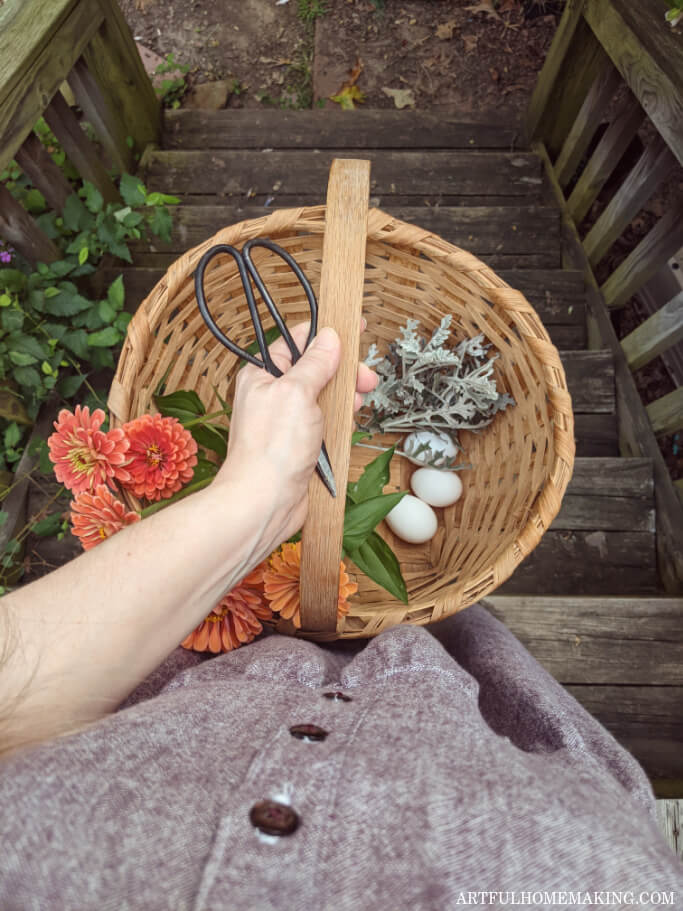
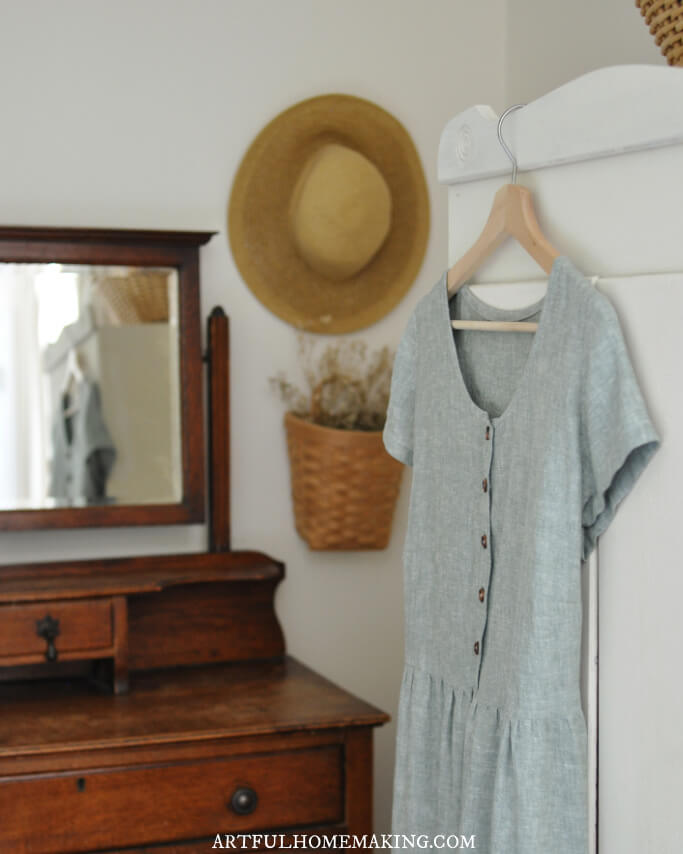
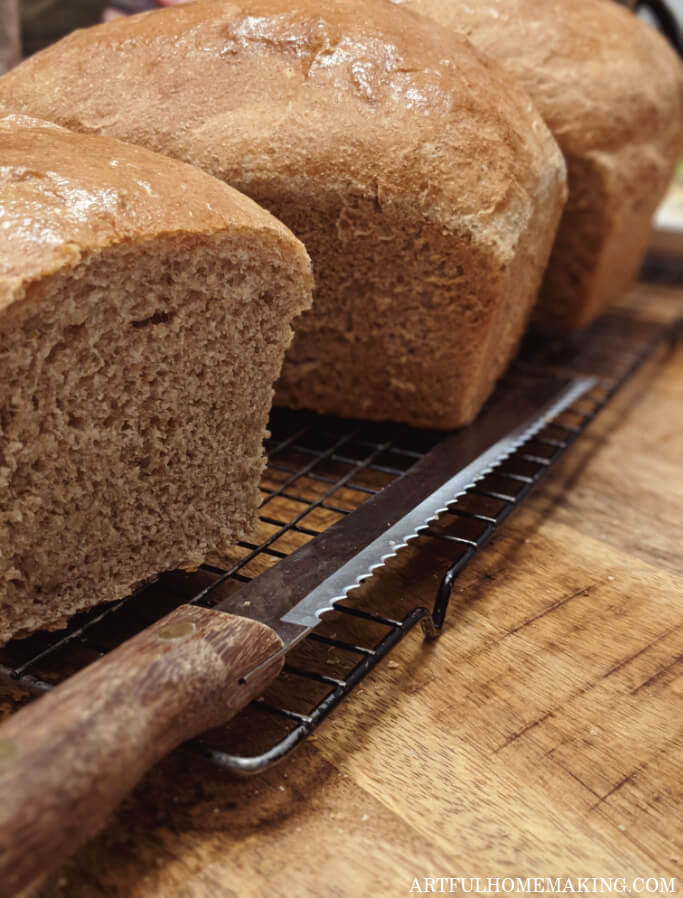
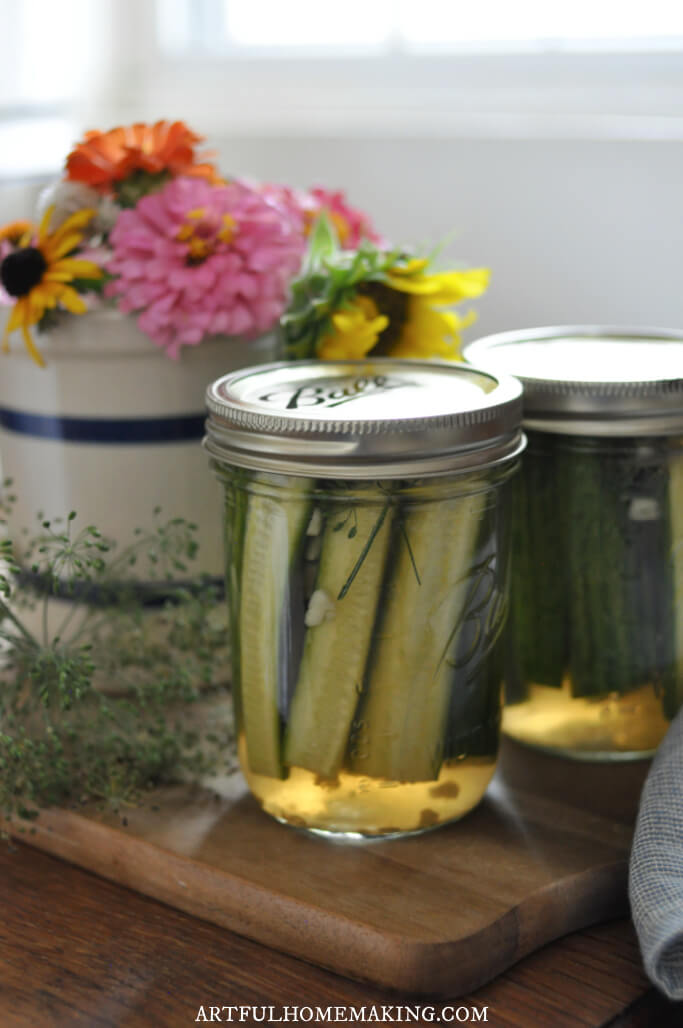
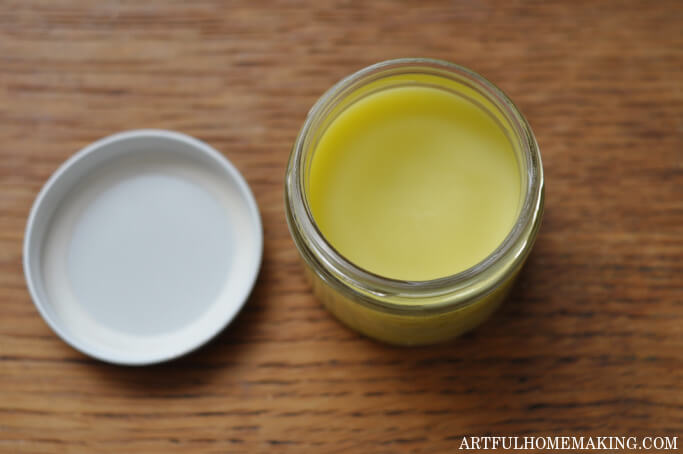
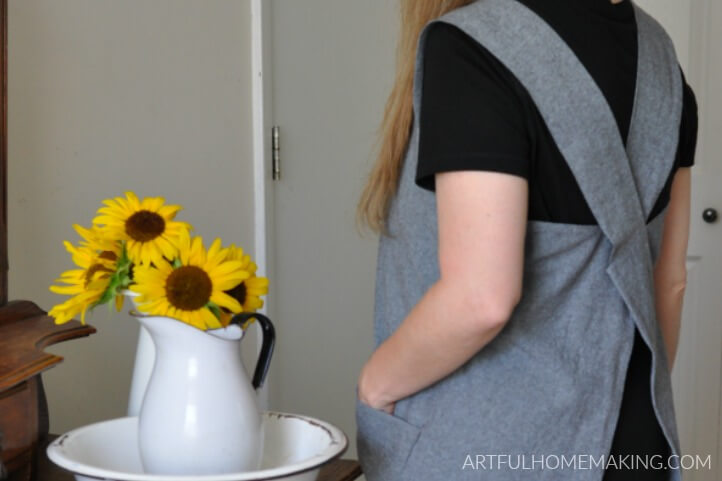
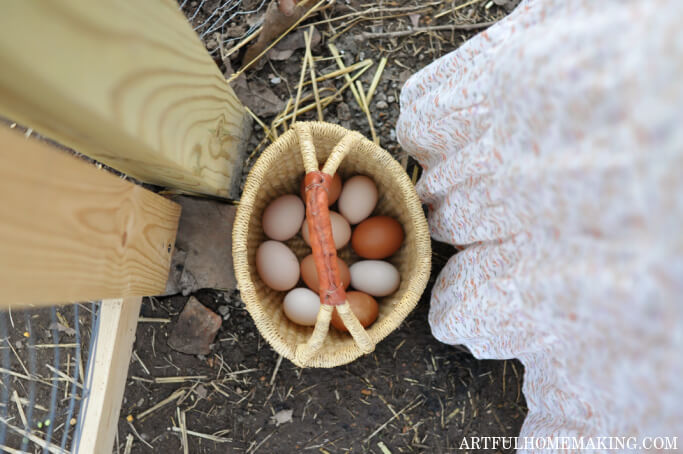
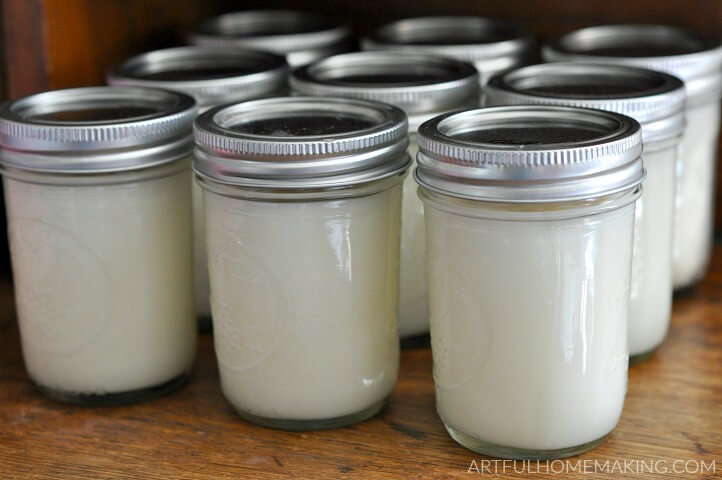
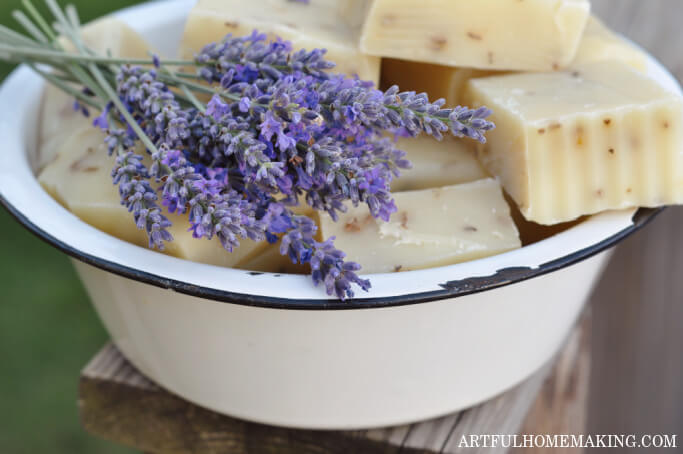
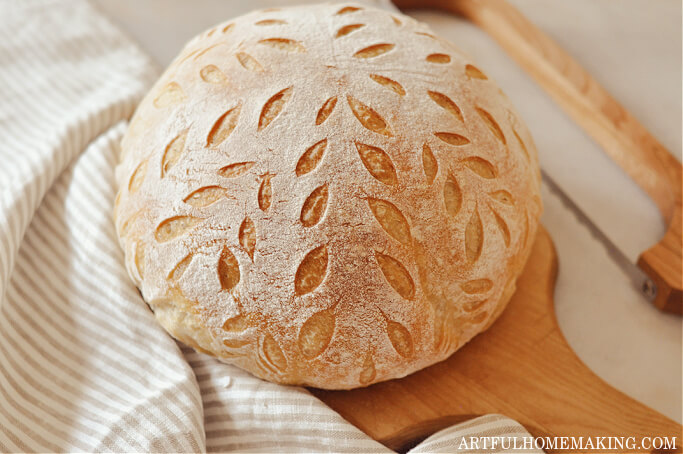
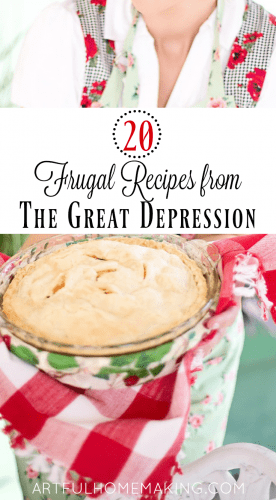

I do all of the stuff on your list. If you don’t want to make a full quilt you can make mug rugs or napkins to start. They don’t take but 30 minutes to make if your new to sewing.
Great suggestions!
Joy, I love all the old ways and I love this post!
Thank you for sharing your 8 useful skills our grandmothers knew post at Create, Bake, Grow & Gather this week. I’m delighted to be featuring it at the party tonight and pinning too.
Happy New Year,
Kerryanne
Thank you! And Happy New Year to you, Kerryanne!
I have to admit, canning is one of those skills that I never learned but always wanted to. Thanks for including the links for more info on each subject.
Thanks so much for stopping by!
Thank you for ALL of your posts in 2021. Happy New Year
Thank you so much, Rebecca! Happy New Year to you!
I LOVE the information in this post! It is so practical! We are a far cry from our grandmothers, and I’d say we’d not fare as well as they did during hard times! But we can learn!
Thanks for sharing this at the Homestead Blog Hop!
Laurie
Thank you, Laurie!
Hi Joy, my grandma also did all of these things and I got interested in them as a child, too. So I still do a lot of these things when I can. I even darn socks, because they’re such bad quality these days they get holes in them at the toes almost as soon as you start wearing them! Thanks for this list of useful skills, I hope it encourages others to start learning them. 🙂
You’ve inspired me to learn how to darn a favorite pair of socks! I have a certain type of sock that isn’t made anymore (I bought them about 10 years ago), and I love wearing them every winter. But now one of them has a hole, but I’m not ready to throw it out! Thanks so much for stopping by, Cheryl!
Hi Joy, that’s great! Darn those socks! I started darning (although I use that word loosely, I’m sure I’m not doing it properly, I’m just sewing up the hole) socks because my husband is a Spiderman fan (yes, I know) and he didn’t want to throw away his holey Spiderman socks!! True story! Now I even darn my own socks, I can’t see the point in throwing away a sock that is good except for one tiny hole. Enjoy your darning! 🙂
Oh, how funny about your husband’s Spiderman socks! 🙂 I agree with you, no point in throwing them away when there’s just one hole!
My grandmother was a farmer’s wife and used all of those skills throughout her life. I was lucky to get to spend holidays and summers with my grandparents on their one acre “retirement” home. I grew up in the city and didn’t start using those skills myself until I retired and started living off-the-grid in a float cabin in Coastal BC. – Margy
What a blessing to spend time with your grandparents. And your off-grid float cabin sounds like an amazing experience!
I love this! My grandma did some of these things although not all of them. She definitely cooked from scratch and she SEWED! She sewed all the time and made lots of her own clothes as well as clothes for her 5 children and husband. And when us grandkids came along, she sewed for us too. She passed along her love of sewing to me, and now I do all of the sewing myself as well as my mom and sister besides teaching others now and then and running my sewing business. 🙂
Thank you, Sarah!
Hi. I would like to say I don’t appreciate an ad for a planner being shoved in my face while trying to read an article and having to do detective work just to find the x button. if i didn’t know how to find it I would have left the site.
please make the x more visible. other than that this was a very informative article. (was using it for some light research.)
Our grandmothers were such wise women! I’m happy to follow in their footsteps (as best I can)! Congrats, you’re featured at the This Is How We Roll Link Party.
Thank you so much for the feature, Susan!
Such great memories of how things used to be. I love the tricks that I learned from my Mom, and can still do today. The world got too into doing things fast and cheap, now they’re paying for it. Old school is always the best. 🙂
Yes, so much we can learn from previous generations!
I was raised a city girl but my mother canned fruit and did some crafts. I moved into the country and raised four children and learned from books how to quilt, repair, make soap, pressure can soups, grow a vegetable garden, bake bread and tend chickens, goats, etc. Now Im 69 and mostly quilt, cook, make soap and grow vegetables…but I havent forgotten the rest so am an information source for others learning how…and now I Google for the info I need.
Thanks for sharing! That’s so wonderful that now you’re able to help others learn these skills!
Not old enough to be a grandmother, but I do all eight of them. I have much more to learn in some of the areas though, such as canning. I enjoy the gardening, but tent to freeze more than I can.
That’s wonderful! I know what you mean about preferring freezing over canning. I tend to do that as well.
#thisishowweroll
I love this. I have a similar post on my blog – except it’s about the vintage skills that I practice! I always say I was meant to be a housewife in the pioneer days.
Your post sounds awesome, Katelynn! I agree, I’ve always been fascinated with vintage home-keeping skills. 🙂
I never knew either of my Grandmas as they died before I was born, but I am sure they had many of these skills. I know my maternal grandmother was said to be able to turn her hand to just about anything – including wallpaper hanging! I think it’s great to keep as many of these skills alive as we can, and such a good idea both to learn them and teach them to our kids! For example, I learned to sew from patterns as a kid, but I’ve really not done if for years, and frankly I’m not sure I still could! I really regret that. Scheduled to pin and also scheduled to share on the Hearth and Soul Facebook page. Thank you so much for being a part of the Hearth and Soul Link Party, Joy!
Thank you so much for sharing, April! And thank you for hosting!
I have done a little canning in my day, homemade vegetable soup was great. I can make cornbread but not biscuits. I agree, so many thing we could learn, but also a lot of hard work many women didn’t live as long in the good old days. It makes me very thankful for modern conveniences, though I wouldn’t mind some peppers or tomatoes.
I agree Rebecca, even though I love learning from the past, I’m so thankful for modern conveniences!
Great post! Sometimes I wish I grew up in that time. Although things are more efficient now, it’s not of the same type of quality. I definitely want to find time to learn to sew and quilt! It’s on my to-do list. 🙂 Thanks for the post.
-Ashley
http://www.truehappinessathome.com
Thank you, Ashley! Have fun learning to sew and quilt! 🙂
Hi Joy,
These resourceful self-help tips are great for sustainable off the grid living. I know how much we miss the basic life skills that our older relatives took for granted.
Thanks,
Bren
Thanks for stopping by, Bren!
I can mend, but I never learned to sew (didn’t know when I picked Spanish that it would cost me a Home Ec class). I’ve been cooking and baking since I was little. and I’ve been baking bread for about 10 years now. I also make a lot of herbal home remedies. I want to try canning and learning to sew and quilt.
Bread baking is such a wonderful skill! I think that’s my family’s favorite thing I do. 🙂 I’m still a hesitant canner (always worried that I’m doing it wrong and will poison someone!), so I’d really like to get a bit more confident in that. So far I’ve only done jams and jellies. I’m too scared to use a pressure canner! So glad you stopped by, Davette!
I guess I have an old soul – I enjoy doing all of these things! Loved reading your post!
Same here! Thanks for taking the time to leave a comment, Roseann!
Agreed! There is so much useful information we can learn from our grandmothers and others in that generation. Great post and wonderful encouragement.
Best,
Bibi
Thank you so much for stopping by, Bibi!
Wonderful post, Joy ! I learned how to sew my dolls’ dresses just from my grandmothers and I still sew summer bermuda shorts for my two sons :)!
Vale ,
Franca
Thank you, Franca! That’s so wonderful that you learned to sew from your grandmothers! What a sweet memory. ♥ And I love that you still sew shorts for your sons!